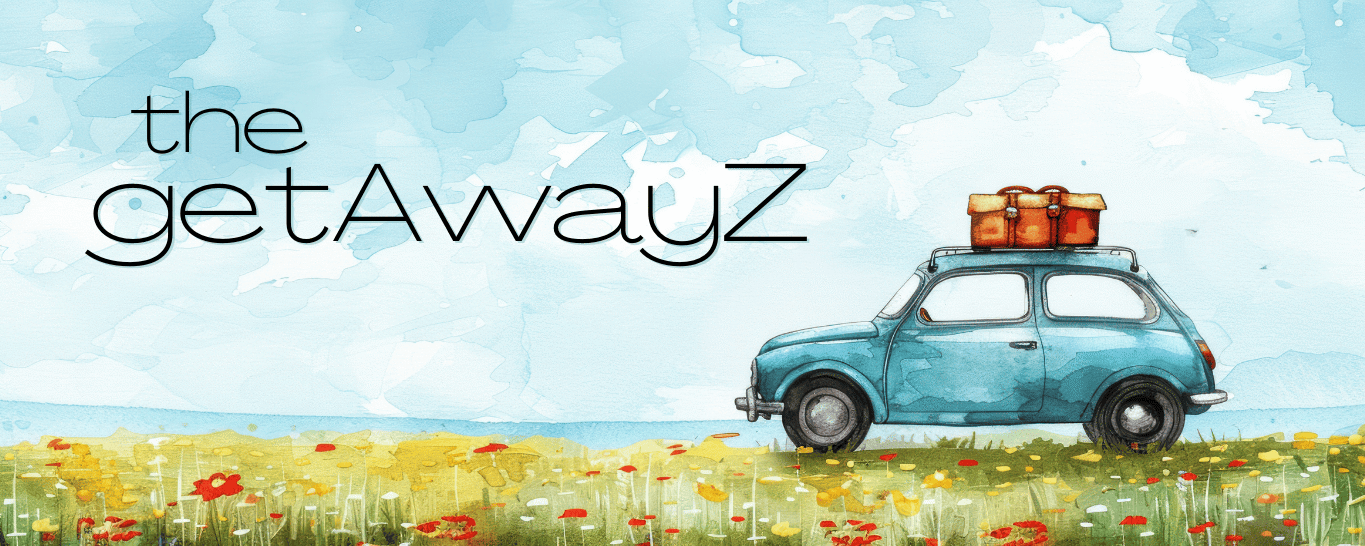Christmas Markets in Germany 2025
Dates, cities, and travel tips for the most festive season of the year
Germany in December feels like a postcard that came to life. Lights hang from half-timbered buildings and choirs sing in the squares while stalls fill the air with cinnamon and roasted nuts. Not to mention the Glühwein (mulled wine). We’ve spent time at markets across the country including Cologne and Nuremberg and they are something we look forward to every year.
Here are the top markets to visit in 2025 and what to know before you go.
Nuremberg: Nov 28–Dec 24
Nuremberg’s Christkindlesmarkt fills the main square with striped stalls, warm gingerbread and handmade ornaments. The Christkind opens the season from the church balcony, a tradition that’s been part of the city for centuries. We visited late in the season and the crowd still packed the square. It’s festive, loud and full of that classic Christmas smell of spice and pine. While not the oldest in Germany, it’s the one most people picture when they think of a traditional Christmas market.
Dresden: Nov 29–Dec 31
Dresden’s Striezelmarkt is Germany’s oldest Christmas market, first held in 1434. Wooden pyramids spin beside toy stands and the city’s famous Stollen fruitcake fills the air with sweet spice. It’s steeped in history and feels exactly how a Christmas market should. We hope to get to Dresden this year, as this market is on the top of our list.
Munich: Nov 27–Dec 23
Marienplatz turns into a glowing maze of wooden stalls surrounded by Gothic towers. The ornaments here are some of the best, many from Bavaria’s mountain workshops. The air smells like roasted chestnuts and cinnamon wine, and the square feels alive all evening. Munich is magical year round, even more so for the holidays.
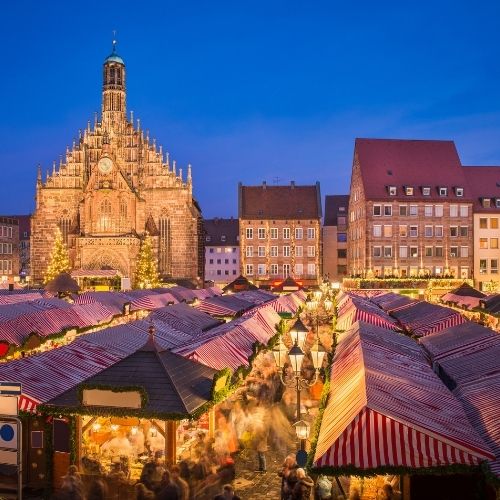
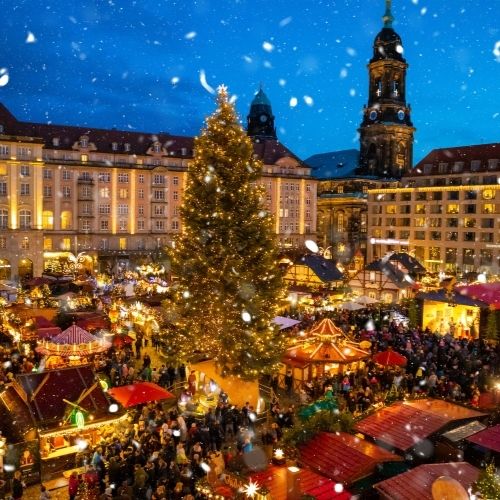
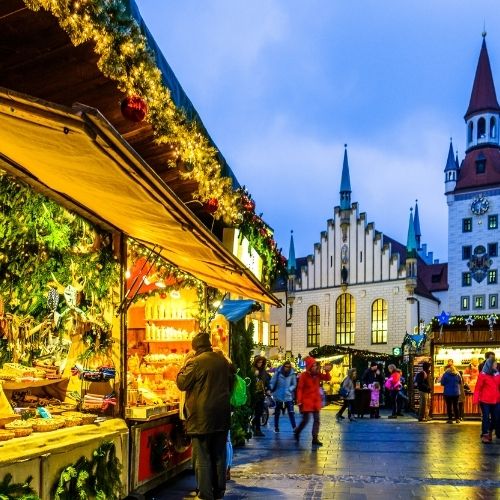
Cologne: Nov 17–Dec 23
Cologne is one of our favorites. There are seven markets across the city, each with its own theme. The Cathedral market is the highlight, set beneath the towers and lit with thousands of stars. We’ve stood here with mugs of glühwein while the choir sang and it’s pure Christmas. The smaller markets near the river are great for food and views. They also have a Christmas train that will take you to all the markets.
Berlin: Nov 13–Jan 5
Berlin hosts close to a hundred markets across the city. The Gendarmenmarkt is the most refined with lighted tents, crafts and live performances. Others, like Charlottenburg and Spandau, have a more local feel. Some charge a small entry fee but it’s worth it for the variety.
Stuttgart: Nov 27–Dec 23
One of Germany’s largest markets, spreading across several streets and squares. Each rooftop is decorated differently and the stalls are packed with food, gifts and candles. There’s a separate area for kids and a strong local feel that keeps it from being too touristy.
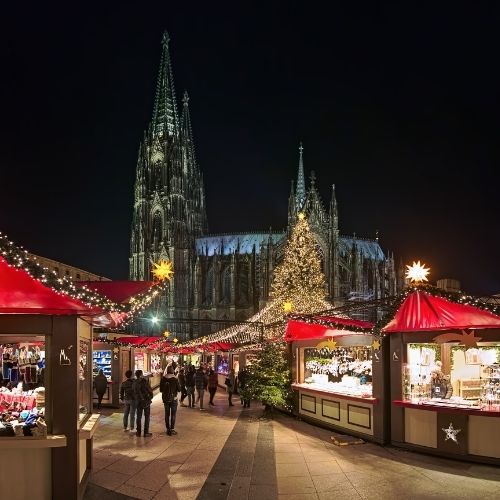
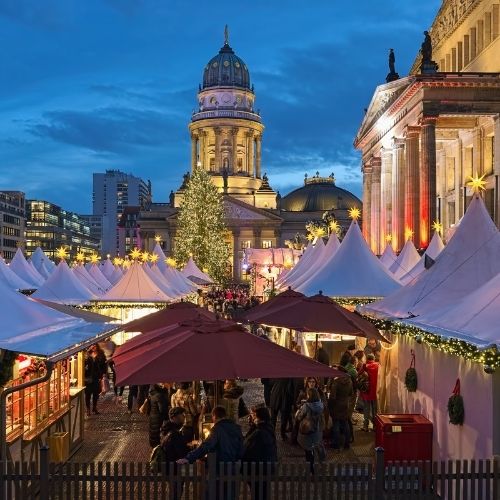
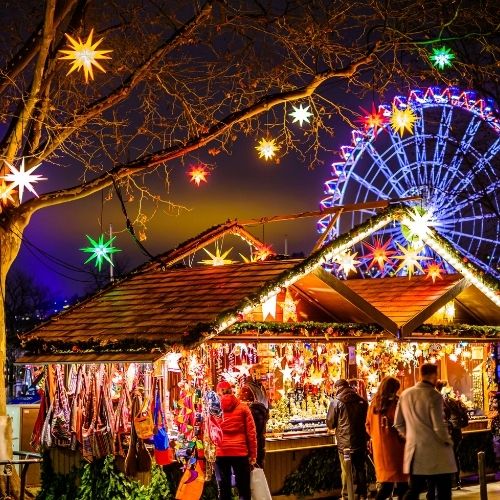
Frankfurt: Nov 24–Dec 23
Frankfurt’s market covers Römerberg square and spills down to the river. Try the marzipan cookies and a cup of hot apple wine, the local version of glühwein. The old buildings surrounding the square make it one of the prettiest backdrops in Germany.
Aachen: Nov 21–Dec 23
Aachen’s market sits between the cathedral and town hall, giving it an intimate feel. The local Printen cookies are a must and there’s a strong focus on handmade crafts. It’s a good choice if you want something less crowded than the big cities.
Heidelberg: Nov 24–Dec 22
Heidelberg’s market stretches across several connected squares with the castle rising above it. There’s an ice rink at Kornmarkt and plenty of food stalls for a slow evening walk. The lights reflect off the river and the whole scene feels calm and cozy.
Lübeck: Nov 25–Dec 30
Lübeck’s Old Town hosts multiple themed markets that blend together as you walk. The historic market inside the Hospital of the Holy Spirit is the most unique. Stop at the city’s famous marzipan shop and try the fresh version dipped in chocolate.
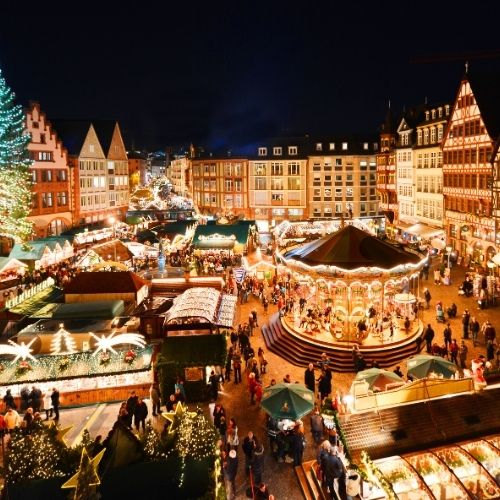
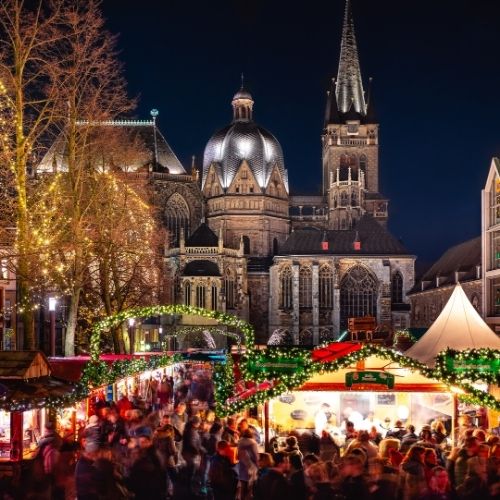
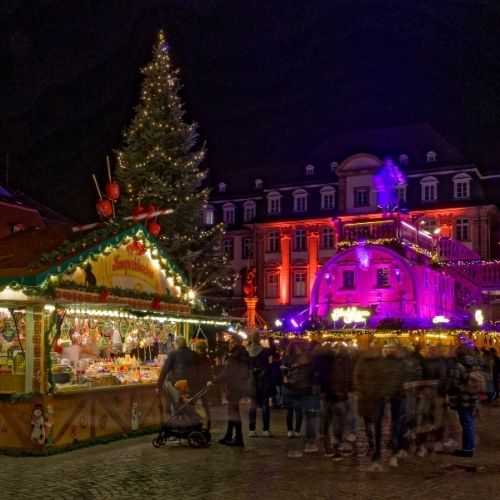
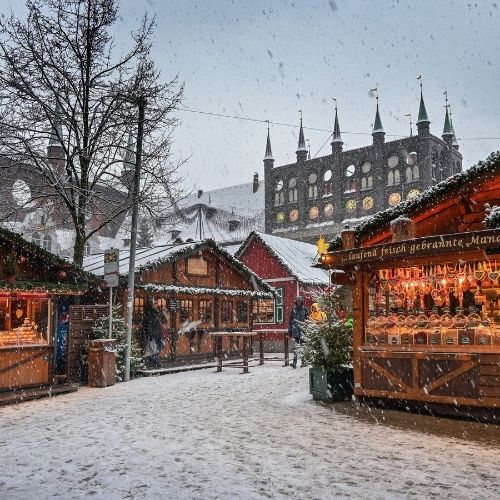
Travel Tips for Germany’s Christmas Markets
- Bring cash. Many stalls still don’t take cards
- Keep your mug. Drinks come with a small deposit you can return or keep as a souvenir
- Dress warm. You’ll be outside for hours and it can snow or rain
- Visit early in the day or after dark. Crowds build quickly around 4 p.m.
- Check local hours. Smaller towns often open only on weekends
- Use the train. The Deutschland Ticket covers regional routes and is the easiest way to move between cities
- Learn the names. Weihnachtsmarkt means Christmas market. In Bavaria it’s often called Christkindlmarkt
Know Before You Go
Most markets open in late November and close by December 23. A few, like Dresden and Berlin, stay open through Christmas or into early January. If you’re visiting near the holidays, book hotels and trains early since weekend dates sell fast.
Planning More Christmas Travel?
Christmas Markets in Austria →
Christmas Markets in France→
Christmas Markets in Italy →
